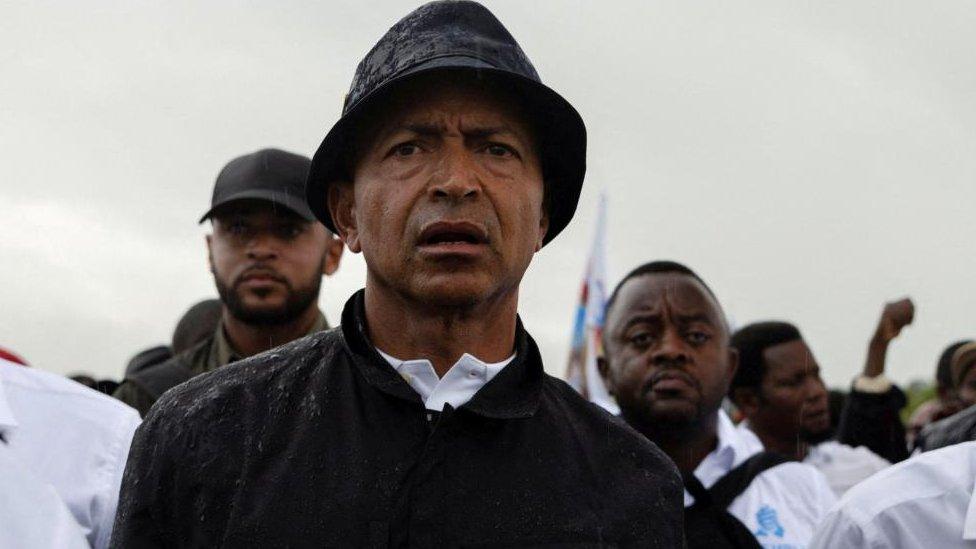Moïse Katumbi in DR Congo: Troops surrounded poll loser's home
- Published

Moïse Katumbi is a multi-millionaire mining magnate and popular football boss
Security forces in the Democratic Republic of Congo briefly surrounded the home of main opposition politician Moïse Katumbi, who came second in last month's disputed elections.
He was prevented from leaving his home in southern Katanga province on Monday, his spokesperson Hervé Diakesse said.
But the security forces later withdrew on the orders of a local governor.
Mr Katumbi has rejected President Félix Tshisekedi's landslide victory in last month's election as a sham.
Five other opposition leaders, including Martin Fayulu, who came third, have called for a protest march against the election results.
On Monday evening, residents of Kashobwe village were seen in social media videos trooping to Mr Katumbi's home after news spread that security forces were preventing him from leaving.
One of Mr Katumbi's relatives told French RFI news website that the home was surrounded by "heavily armed soldiers".
"We are struggling to figure out why," Mr Diakesse, told Reuters news agency.
In a bid to defuse the escalating crisis, provincial governor Jacques Kyabula Katwe ordered the security forces to leave, calling the incident a "faux pas".
He said the initial intention of the security forces was to protect Mr Katumbi's property from potential acts of vandalism.
The 20 December election was marred by widespread logistical problems, with some independent observers raising concerns about the vote.
Only one candidate has gone to court to challenge the presidential election results.
The main ones say they have no faith in the courts and have instead called for the population to "resist electoral fraud" without giving any details.
Mr Tshisekedi won about 73% of the vote, while Mr Katumbi got 18% and Mr Fayulu 5%, the election commission said.
Western governments have called for restraint amid fears of post-election violence, with the UN's top human rights official, Volker Turk, voicing alarm about rising ethnic tension.
Nearly 20 people were killed in election-related violence in the run-up to the vote.
You may also be interested in: